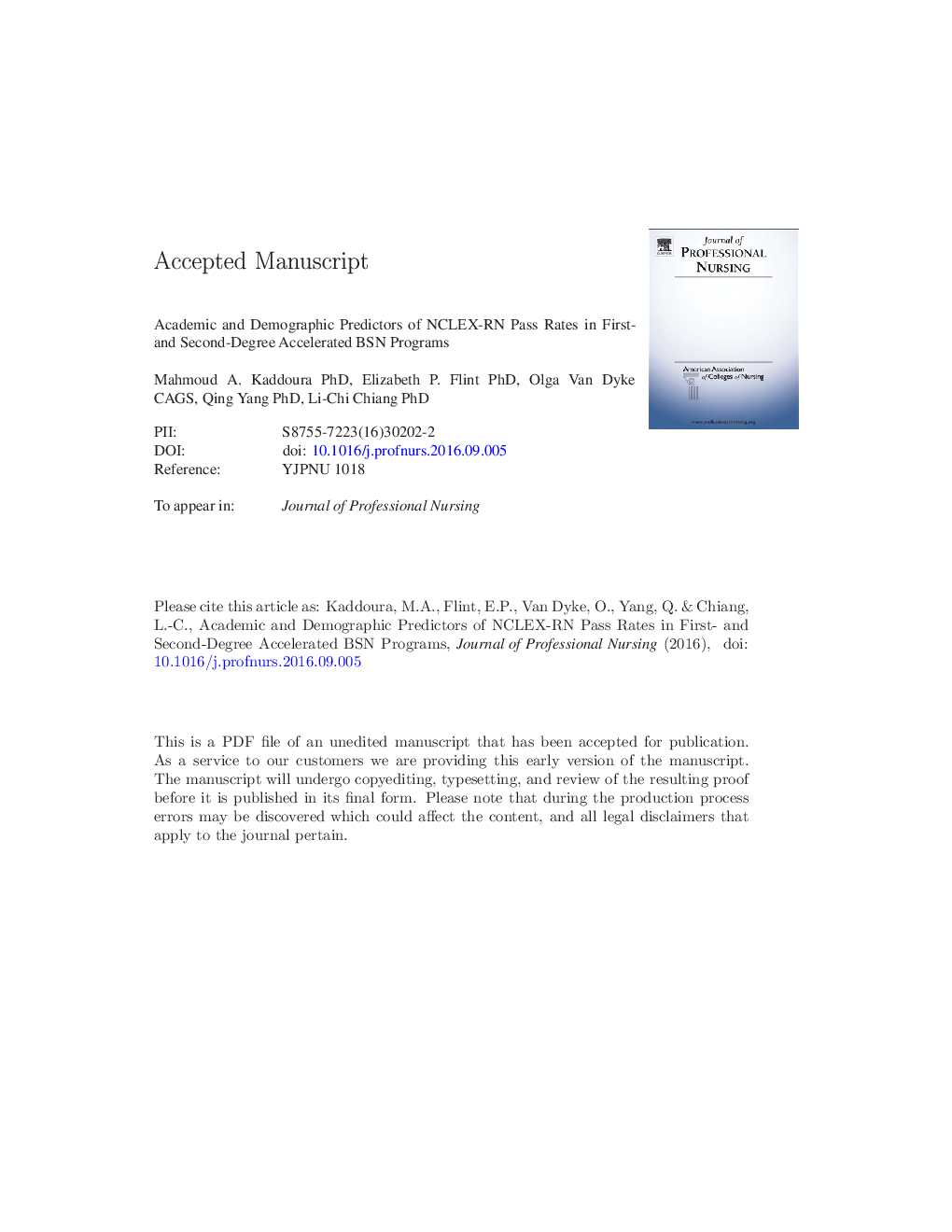| کد مقاله | کد نشریه | سال انتشار | مقاله انگلیسی | نسخه تمام متن |
|---|---|---|---|---|
| 5570527 | 1403755 | 2017 | 39 صفحه PDF | دانلود رایگان |
عنوان انگلیسی مقاله ISI
Academic and Demographic Predictors of NCLEX-RN Pass Rates in First- and Second-Degree Accelerated BSN Programs
دانلود مقاله + سفارش ترجمه
دانلود مقاله ISI انگلیسی
رایگان برای ایرانیان
کلمات کلیدی
موضوعات مرتبط
علوم پزشکی و سلامت
پرستاری و مشاغل بهداشتی
پرستاری
پیش نمایش صفحه اول مقاله

چکیده انگلیسی
Relatively few studies have addressed predictors of first-attempt outcomes (pass-fail) on the National Council Licensure Examination-Registered Nurses (NCLEX-RN) for accelerated BSN programs. The purpose of this study was to compare potential predictors of NCLEX outcomes in graduates of first-degree accelerated (FDA; n = 62) and second-degree accelerated (SDA; n = 173) BSN programs sharing a common nursing curriculum. In this retrospective study, bivariate analyses and multiple logistic regression assessed significance of selected demographic and academic characteristics as predictors of NCLEX-RN outcomes. FDA graduates were more likely than SDA graduates to fail the NCLEX-RN (P = .0013). FDA graduates were more likely to speak English as a second or additional language (P < .0001), have lower end-of-program GPA and HESI Exit Exam scores (both P < .0001), and have a higher proportions of grades ⤠C (P = .0023). All four variables were significant predictors of NCLEX-RN outcomes within both FDA and SDA programs. The only significant predictors in adjusted logistic regression of NCLEX-RN outcome for the pooled FDA + SDA graduate sample were proportion of grades ⤠C (a predictor of NCLEX-RN failure) and HESI Exit Exam score (a predictor of passing NCLEX-RN). Grades of C or lower on any course may indicate inadequate mastery of critical NCLEX-RN content and increased risk of NCLEX-RN failure.
ناشر
Database: Elsevier - ScienceDirect (ساینس دایرکت)
Journal: Journal of Professional Nursing - Volume 33, Issue 3, MayâJune 2017, Pages 229-240
Journal: Journal of Professional Nursing - Volume 33, Issue 3, MayâJune 2017, Pages 229-240
نویسندگان
Mahmoud A. PhD, Elizabeth P. PhD, Olga CAGS, Qing PhD, Li-Chi PhD,